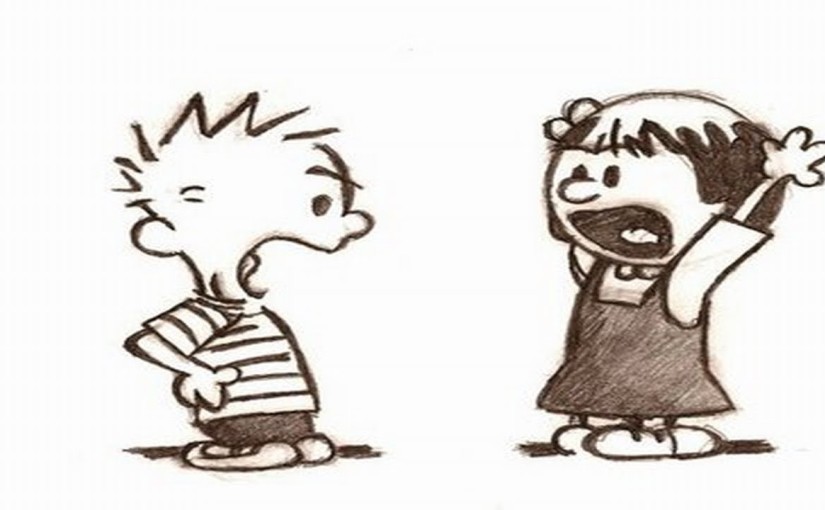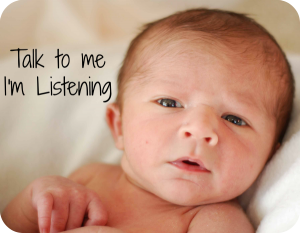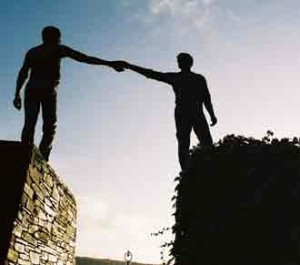Some people wish religious faith would go away all together. A few of our atheist friends on the secular left wish religion didn’t influence the culture at all; that’s not going to happen.
Some people wish their way of being religious would be synonymous with the culture. A few of our Christian friends on the religious right think a theocracy defined by them would be a good thing for America; that’s not going to happen either.
Then there’s the vast messy middle. Most of us recognize there are countless influences that shape a society and form its multicultural culture – religion being one of them. Intersections of personal faith, culture and politics are inevitable. And they are legal. What those of us in the middle want to talk about is how to ensure those intersections are appropriate.
My one little contribution to our public conversation is to try to name some of those intersections and ponder ways faith influences our American culture for better or for worse. I want to stand in the middle with so many others of you and carry on reasonable and civil conversations about how those intersections can be helpful rather than harmful to our American society. Identifying crossroads and posting signs gives all of us greater ability and wisdom as we choose our communal path.
I’m not the only one. Numerous wise and thoughtful people have been doing this same work of pondering intersections for years. The Reverend Dr. Martin Luther King probably did it best in our recent memory.  From his deep Christian faith, he demonstrated how religious convictions can positively influence the life of a secular nation. His dream was the dream of the biblical prophets who called for “justice to roll down like waters and righteousness like a mighty stream.”
From his deep Christian faith, he demonstrated how religious convictions can positively influence the life of a secular nation. His dream was the dream of the biblical prophets who called for “justice to roll down like waters and righteousness like a mighty stream.”
The Dalai Lama shows us again and again how faith can make us a wiser, kinder, more compassionate people. “My call for a spiritual revolution is not a call for a religious revolution. Nor is it a reference to a way of life that is somehow otherworldly, still less to something magical or mysterious. Rather it is a call for a radical reorientation away from our habitual preoccupation with self. It is a call to turn toward the wider community of beings with whom we are connected, and for conduct which recogniz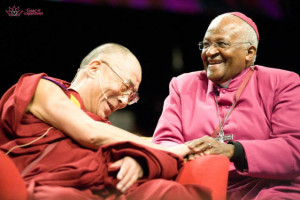 es others’ interests alongside our own.”
es others’ interests alongside our own.”
Archbishop Desmond Tutu of Africa embodies peace and reconciliation. His efforts to end apartheid flowed naturally from his belief that the Creator has created a marvelously diverse creation and that all people in all our glorious variety reflect the very image, unity and harmony of God. “The God who existed before any religion counts on you to make the oneness of the human family known and celebrated.”
From her deep faith, Malala Yousafzai finds courage to live fearlessly and strength to work tirelessly for women’s education. 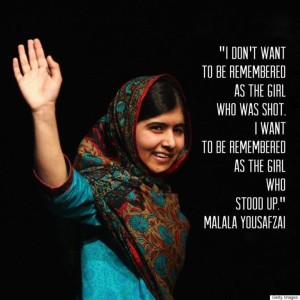 Faith, for Malala (as for many religious people), requires a healthy critique of institutional religion; religious dogma must not contradict the fundamental value and dignity of every human. “In Pakistan when women say they want independence, people think this means we don’t want to obey our fathers, brothers or husbands. But it does not mean that. It means we want to make decisions for ourselves. We want to be free to go to school or to go to work. Nowhere is it written in the Quran that a woman should be dependent on a man.”
Faith, for Malala (as for many religious people), requires a healthy critique of institutional religion; religious dogma must not contradict the fundamental value and dignity of every human. “In Pakistan when women say they want independence, people think this means we don’t want to obey our fathers, brothers or husbands. But it does not mean that. It means we want to make decisions for ourselves. We want to be free to go to school or to go to work. Nowhere is it written in the Quran that a woman should be dependent on a man.”
Pope Francis speaks audaciously from his bully pulpit and acts boldly to challenge environmental irresponsibility and rampant materialism. “Human rights are not only violated by terrorism, repression or assassination, but als o by unfair economic structures that create huge inequalities.”
o by unfair economic structures that create huge inequalities.”
The deep wisdom of deep faith transcends religious ideologies. It is this wisdom that provides a helpful intersection between faith, culture and politics and allows all of us to find common ground and a shared vocabulary.
For my atheist friends on the secular left who wish religion would just go away, I say in the kindest way possible: get over it. Religion will ever be a powerful force in the world. Instead of demeaning people of faith, I challenge you to let us be your allies so we can work together to accomplish greater justice and equity throughout our American society.
For my Christian friends on the religious right who wish your particular way of being religious would control our culture, I say in the kindest way possible: get over yourselves. Good and decent people who hold all kinds of beliefs are also children of God, your sisters and brothers. Instead of dismissing people whose faith is different from yours, I challenge you to be grateful for the wisdom inherent in this national diversity and work together with us to accomplish more kindness and compassion within our American culture.
Around dinner tables and over back fences, in community forums, Living Room Conversations and Coffee Party discussions, let’s explore the various intersections of our various perspectives with civil dialogue and reasonable debate. It is in these intersections that we will find our collective wisdom. It is in collaboration that we will be able to address our shared challenges with our shared strength.
P.S. Here is a great blog as we celebrate Martin Luther King Day.
Christians, MLK Day and Historical Amnesia by Rachel Held Evans
Charlotte’s Facebook Newsfeed
Public Religion Research
https://www.facebook.com/PublicReligion
The Faith and Politics Institute
https://www.facebook.com/FaithNPolitics
Corner of Church and State
https://www.facebook.com/rnscorner
Sojourners
https://www.facebook.com/SojournersMagazine
The Christian Left
https://www.facebook.com/TheChristianLeft
Unfundamentalist Christians
https://www.facebook.com/UnfundamentalistChristians
I Am Malala
https://www.facebook.com/iammalalabook
Muslims for Progressive Values
https://www.facebook.com/mpvusa
Bend the Arc: a Jewish partnership for Justice
https://www.facebook.com/bendthearc
Charlotte Vaughan Coyle lives in Paris TX and blogs about intersections of faith, culture and politics on her website and Intersections Facebook page. She frequently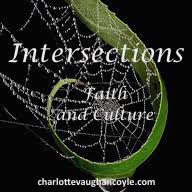 shares her thoughts with Coffee Party USA as a regular volunteer.
shares her thoughts with Coffee Party USA as a regular volunteer.
Charlotte is an ordained minister within the Christian Church (Disciples of Christ) and also blogs about Scripture from a progressive Christian approach in her Living in The Story Musings.
